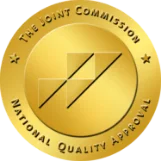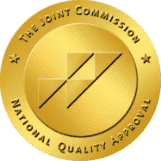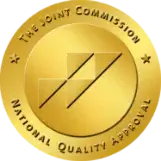For almost two decades now, International Overdose Awareness Day, observed each year on August 31, has raised awareness about drug overdoses, helped to reduce the stigma of drug-related fatalities and given a voice to the family members and friends who tragically lost a cherished loved one.
The Theme for International Overdose Awareness Day #IOAD2020 is “Time to Remember. Time to Act.”
The Centers for Disease Control and Prevention (CDC) reports that in 2018 nearly 70,000 people lost their lives as a result of drug-related overdoses.
The stereotype of the “down and out” loner who dies from a drug overdose has never been true. These unnecessary deaths can happen to anyone, and in each case, the loss leaves behind devastated family and friends.
One of the goals of International Overdose Awareness Day is to help teach people the signs and symptoms of a drug overdose so that they may be able to save someone’s life. With even a little bit of education, everyone can do their part to reduce the number of overdose deaths.
Signs and Symptoms of a Drug Overdose
Certainly illegal narcotics are incredibly dangerous. In most situations, users are completely unaware whether or not the drugs they’re using have been cut with other drugs, like fentanyl, that are even more deadly.
Just as common, however, are overdoses related to the misuse of prescription medications, as well as the combination of medications with other stimulants, such as alcohol, that can create a lethal mixture.
This makes it necessary for anyone regularly using drugs, or those close to them, to be able to identify the signs and symptoms of a drug overdose and to be able to respond properly to save a life.
Depressant Drug Overdose Symptoms
Depressants, which are drugs like opioid prescription painkillers, heroin, alcohol and benzodiazepines, are central nervous suppressants. It is incredibly easy to overdose on these types of drugs, especially if they are used together.
So, it is vital to recognize the signs of someone who may be in medical distress as a result these drugs.
The symptoms of a depressant drug overdose can include some of the following:
- Shallow breathing or no breathing at all
- Bubbling or gurgling noises in a semi-conscious person may mean they have a blocked airway
- Fingertips or lips that appear blue from lack of oxygen
- Severe disorientation or an inability to stand, walk, or move around
- Unconsciousness or unresponsiveness to surroundings
Even if a person appears to be sleeping, but is unresponsive to others attempts to rouse them, they can still be in medical distress and 911 should be called immediately.
While waiting for first responders, it’s important take these additional steps, if necessary:
- Make sure their airway is clear and that they are not on their back. Roll them on their so that if they do vomit, they will not suffocate
- Help them breathe if they’ve stopped breathing by tilting back their head, pinching their nose and giving two slow breaths mouth-to-mouth. The person’s chest, not their stomach, should rise with each breath. Give additional breaths, if needed, every five seconds before an ambulance arrives
- For an opioid overdose, use Narcan, an overdose reversal drug, if its available and someone present is trained in how to administer it
- Be as clear as possible with first responders about what the overdose victim ingested
Stimulant Drug Overdose Symptoms
Stimulants are drugs like methamphetamine, cocaine, MDMA, or even prescription medications, such as Adderall. Stimulant drugs can increase the risk of seizures, heart attacks, or psychosis during an overdose.
The symptoms of a stimulant drug overdose can include some of the following:
- Confusion, disorientation or faintness
- Severe headache
- Chest pains, tightness in the chest or difficulty breathing
- A high temperature, but not sweating
- Extremely agitated, paranoid or hallucinating
- Seizure or unconsciousness
If a stimulant overdose is occurring at a concert, club, musical festival, or other type of organized event, find paramedics immediately or, as with any other situation, call 911.
After first responders have been notified, take some of these additional steps if necessary:
- If an overdose victim is able, move them to a location with cooler temperatures, but make sure first responders know where you will be
- Give them sips of water or sports drinks with electrolytes
- Do not leave a person while paramedics are on their way, if at all possible
- Be as clear as you can with first responders about what the person took and when they took it, if you have this knowledge about the situation
How to Get Involved this International Overdose Awareness Day
Far too often, people struggling with addiction to drugs or alcohol are considered beyond help. Nothing is farther from the truth. Addiction treatment can be extremely effective even for people whose disease is long-term and progressive.
One way to help prevent overdose death is to speak openly with friends or family members who may be battling addiction. Make sure they know you care about them and that you want them to get the help and treatment they deserve.
Nobody uses drugs because they want to get addicted. It progresses over time, so it’s important to understand the 5 stages of addiction and to be aware of how these stages develop over time to head them off early.
Compassion, understanding and support can be the key to someone caught in the throes of addiction finally seeking help.
The official website of international overdose awareness day is also promoting a helpful video with a number of other ways that people can show their support and make a difference in people’s lives.






















